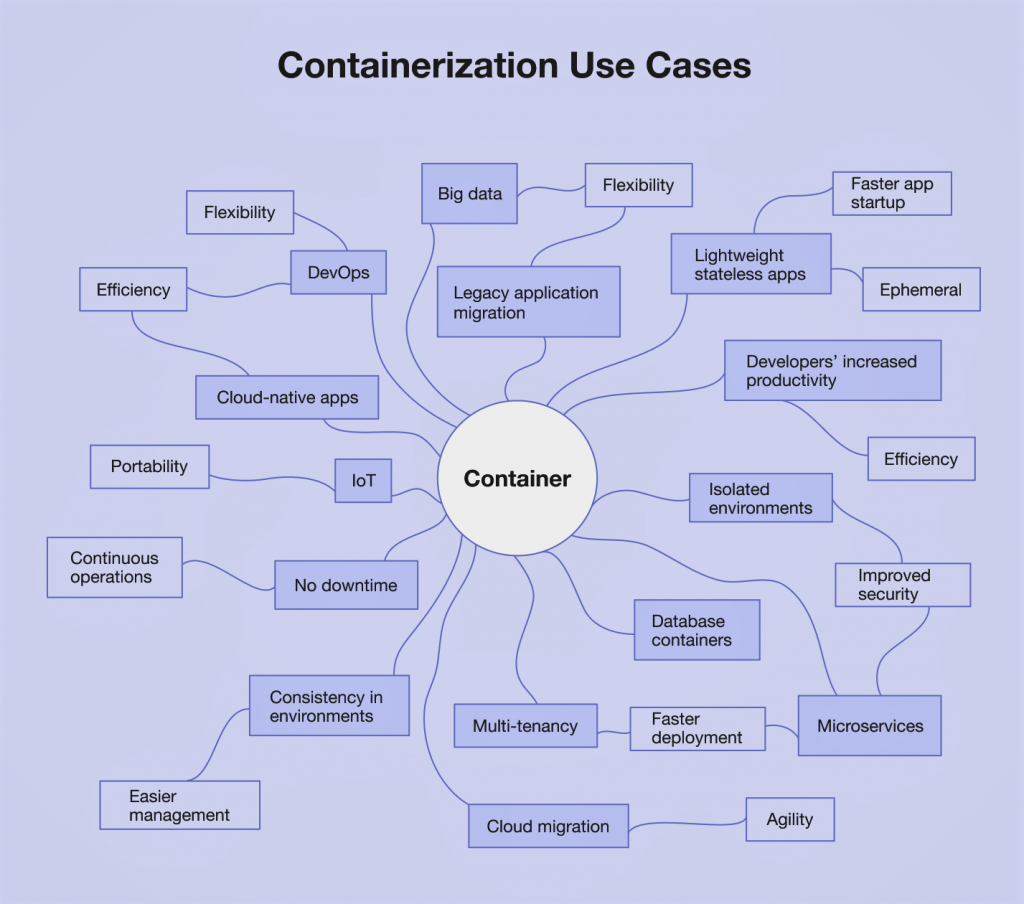Introduction to Containers on AWS
Containers on AWS are the number one place to run containers, and this is because of the security, reliability and scalability provided by AWS.
Benefits of AWS Containers
Below are some of the benefits provided by AWS containers:
- Secure: AWS offers 210 security and compliance services which is the largest number of security services provided by any of the cloud service providers. It also provides strong isolation between containers ensuring that you are running updated security policies.
- Reliable: AWS has one of the best global infrastructures and it has two times more availability zones as compared to other cloud service providers. The SLAs for its container services – ECS, EKS and Fargate provide ease of mind to its customers.
AWS Container Service Options
Choice AWS offers a good range of services that you can choose from as per your requirements. Below are some of its services:
- AWS Fargate: Choose Fargate if you want serverless computing for containers.
- AWS EC2: Choose this if you want to install, configure and manage your computing environment.
- AWS ECS or EKS: Choose Amazon Elastic Computer Service or Elastic Kubernetes Service for container management.
- AWS EKS Anywhere: Choose this if you need to create and operate a Kubernetes cluster on your own infrastructure.
- Amazon EKS Distro: Choose this when you run Kubernetes distribution that powers Amazon EKS
- Amazon proton: Choose this for container and serverless deployments.
- Amazon Fargate: This runs the containers without managing servers.
- Amazon Lightsail: This runs container applications for a fixed monthly price.
- Amazon Elastic Compute Cloud: These run containers with server-level controls.
Other Services of Containers on AWS
- There are other services offered by Amazon like App2Container, Copilot, and App Runner that help customers manage serverless computing more effectively.
- Integration: Amazon container services are deeply integrated with AWS allowing it to leverage the breadth and depth of AWS cloud ranging from networking and security to monitoring.
Use Cases for Containers
Containers can be used in the below scenarios:
- Containers provide isolation that makes it easy to break applications into independent chunks called microservices.
- You can package jobs like ETL jobs into a batch to start them quickly.
- Machine learning models can be easily scaled and run close to the data sources on any platform.
- Containers help to standardize code deployment.
- Containers make it easy to package the code and deploy it on the cloud thus helping in code migration to the cloud.
- We can use containers to build platforms that remove the need for developers to manage infrastructure.

Examples of Companies Using AWS Containers
Many companies like Snapchat, Autodesk, Vanguard and Change Healthcare use containers to provide services to their customers.
Learn More about AWS Containers
Read more on:
You can find more details in the article at the provided link:

Leave a Reply